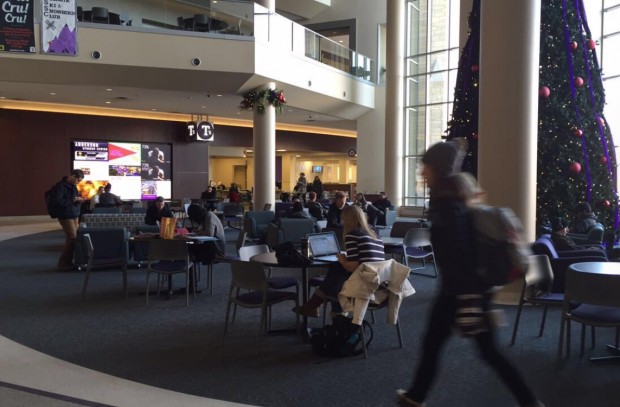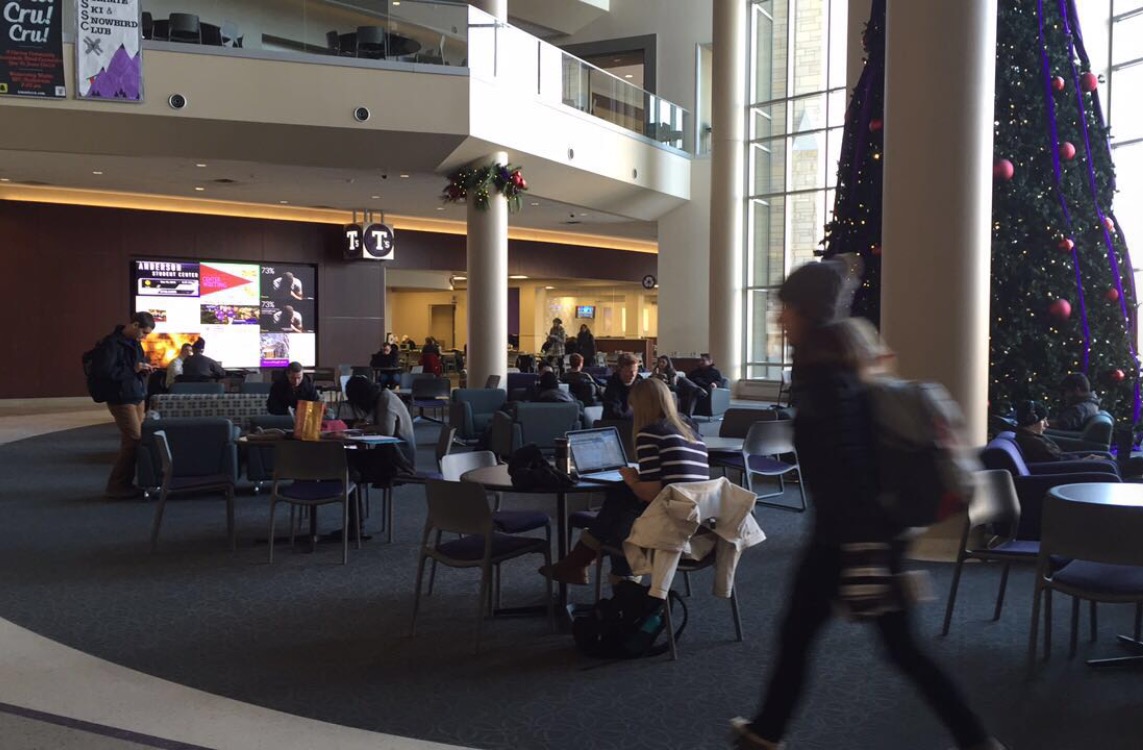
Finals are one of the most stressful times for students, especially before the holidays. St. Thomas launched Learn to Live, an online program, as a treatment option for students struggling with stress, depression, low mood or social anxiety. (Emily Sweeney/TommieMedia)
On Dec. 5, the University of St. Thomas formally launched Learn to Live which offers online programs and tools for students struggling with stress, depression, low mood or social anxiety.
Counseling and Psychological Services plans to pilot Learn to Live to see how students react to the program with the goal of meeting the health needs of a greater portion of the university population.
Live to Learn is primarily designed for people who will not seek out face-to-face therapy due to barriers such as social stigma, cost and accessibility, or for those whose needs can be met by accessing the services on their computer.
St. Thomas is one of the “first universities in the U.S. to make internet-delivered (Cognitive Behavioral Therapy) available for their students,” Learn to Live representative Bridget Deering said in an email interview.
“Cognitive Behavioral Therapy (CBT) is the model of talk therapy that has been demonstrated the most effective for anxiety, depression and a host of other challenges,” Deering said.
Learn to Live offers three online programs based on CBT, focusing on social anxiety, depression, and stress, anxiety and worry. Each program has eight lessons that users can complete at their own pace.
“With CBT, the focus is on changing the thinking patterns that get us stuck and harnessing our behavior patterns to change our emotions and make us more resilient,” Deering said.
Learn to Live offers free resources and a confidentiality promise that no information will be shared with employers, organizations or academic institutions.
Junior Xavier Walk liked that the site was confidential and separate from other institutions. “As a person who knows multiple people who struggle with anxiety, stress and depression, (I know that) if they put their name out there, they feel like they’ll be targeted,” Walk said.
Junior Margaret Harmon thought the program was an interesting idea. “It might be good for someone who isn’t comfortable meeting with someone face-to-face or going to an office,” Harmon said.
Walk agreed the program gives students a new kind of freedom to organize their “appointments” around their schedules. Instead of having to make appointments or plan to visit a destination, Walk thinks students will like that “I can sit here and do this on my own time” within the “comfort of their own homes.”
Harmon noted that although Learn to Live is a unique program, there are some benefits in traditional counseling methods. She acknowledged counselors can help students plan their schedules for the week. So because Learn to Live does not have in-person counselors, students “would have to be very motivated” and hold themselves accountable for sticking to the plan.
“It’s designed as a self-help tool/resource available to students, though I believe they have an online community of users that students would be able to join,” Steve Maurer, Director of Counseling and Psychological Services, said.
Students interested in an option that includes regularly meetings could explore the process therapy groups that Counseling and Psychological Services offers every semester.
Emily Sweeney can be contacted at swee4225@stthomas.edu.




A link to the site itself would be useful.